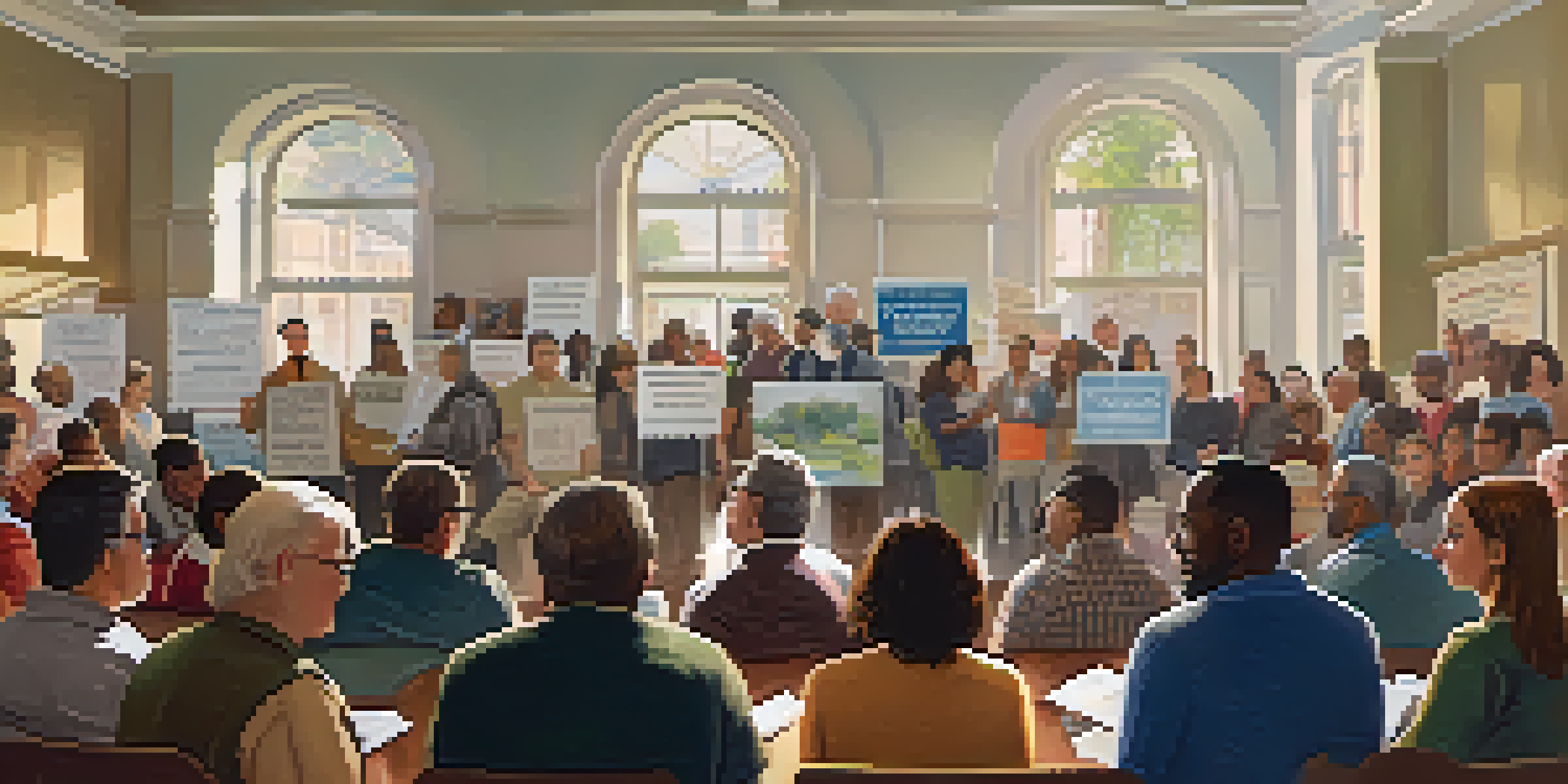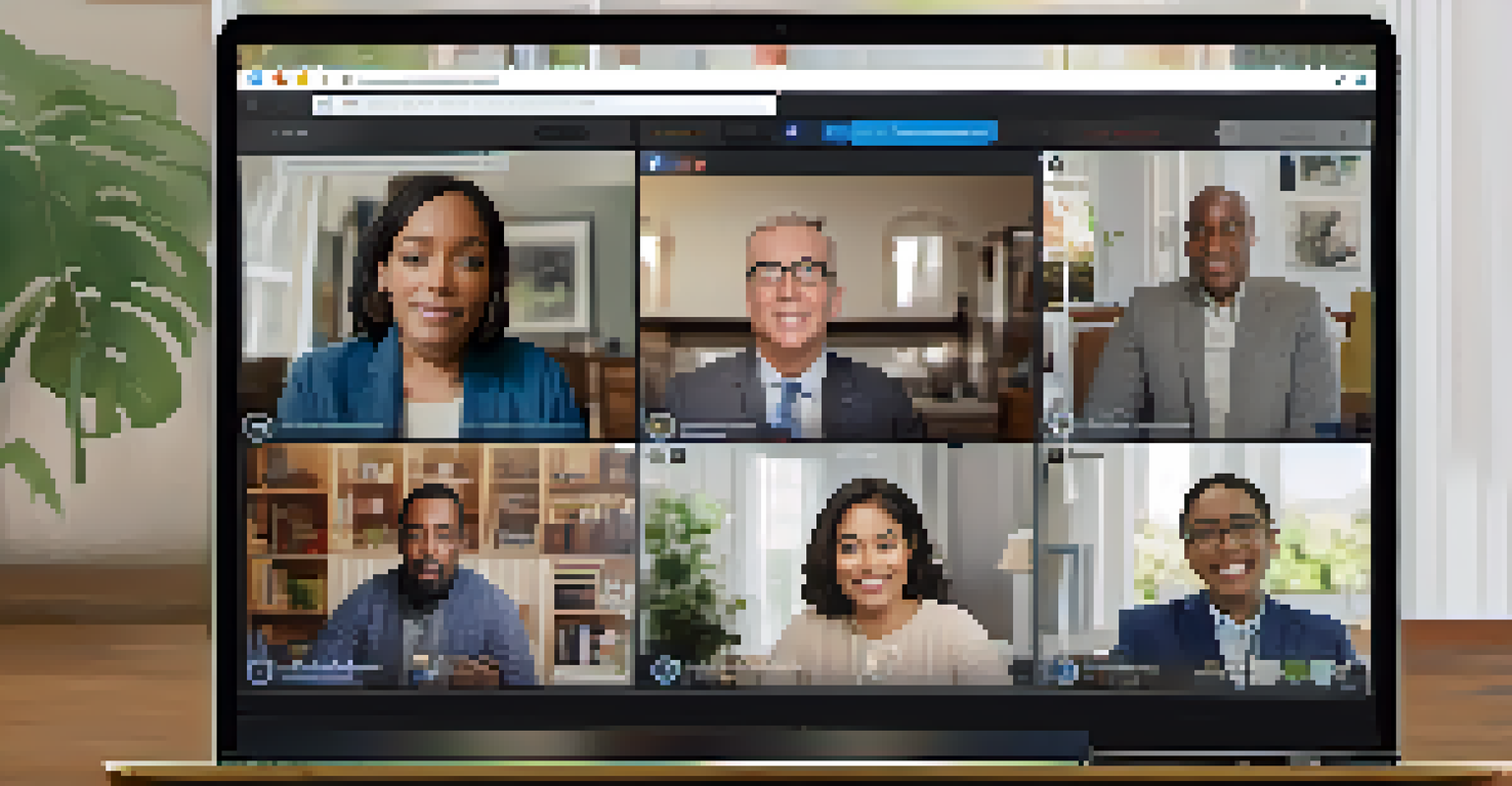Understanding Civic Engagement: A Guide for Los Angeles Residents

What is Civic Engagement and Why It Matters
Civic engagement refers to the ways individuals participate in their community and influence decision-making. It encompasses a range of activities, from voting to volunteering, and everything in between. Understanding civic engagement is essential, especially in a diverse city like Los Angeles, where every voice contributes to the larger narrative.
The best way to find yourself is to lose yourself in the service of others.
Engaging in civic activities allows residents to advocate for issues that matter to them, whether it’s environmental concerns, public safety, or education. For instance, attending local council meetings can give you insight into how decisions are made and how you can shape them. Furthermore, civic engagement fosters a sense of belonging and responsibility towards one’s community.
Ultimately, when citizens are engaged, the community thrives. Decisions made at local levels can significantly impact daily life, from street repairs to public transport. By understanding and participating in civic engagement, Angelenos can help create a city that reflects their values and needs.
The Various Forms of Civic Engagement
Civic engagement comes in many shapes and sizes, each providing unique opportunities for individuals to get involved. Common forms include voting, volunteering, attending town hall meetings, and participating in community events. Each of these activities can lead to meaningful connections and a deeper understanding of local issues.

For example, volunteering at a local non-profit not only allows you to contribute to a cause you care about but also connects you with like-minded individuals who share your passions. Similarly, voting in local elections empowers you to influence policies that affect your neighborhood directly. Every form of civic engagement plays a crucial role in shaping the community.
Civic Engagement Empowers Communities
Participating in civic activities allows residents to advocate for important issues, fostering a sense of belonging and responsibility.
Moreover, engaging with your neighbors can also be a form of civic involvement. Organizing a community clean-up or starting a book club can build camaraderie and strengthen ties. These small actions can lead to larger initiatives that foster a vibrant, engaged community, showcasing the power of collective efforts.
How to Get Started with Civic Engagement
Getting started with civic engagement may seem daunting, but it can be as simple as committing to one small action. Begin by educating yourself about local issues and initiatives that resonate with you. Following local news, joining community groups on social media, or reading up on city council agendas can provide valuable insights.
Civic engagement is not just about voting; it’s about being part of the solution.
Next, consider attending local meetings or events to see what civic engagement looks like in action. Many neighborhoods host regular meetings where residents can voice concerns and discuss community needs. This is a great way to meet fellow residents and learn about ongoing projects that may interest you.
Finally, don’t hesitate to reach out to local organizations that align with your interests. Many groups actively seek volunteers for various initiatives, making it easy to dive in and contribute. Remember, every small step you take helps build a more engaged and vibrant community.
The Role of Technology in Civic Engagement
In today’s digital age, technology has transformed how we engage with our communities. Online platforms make it easier than ever to stay informed about local issues and connect with others who share your interests. Social media, websites, and apps dedicated to civic engagement provide valuable resources for residents.
For instance, platforms like Nextdoor allow neighbors to communicate about community events, safety concerns, and local resources. Similarly, websites like Ballotpedia offer information on upcoming elections, candidates, and measures, empowering citizens to make informed decisions. Technology serves as a bridge, connecting individuals and fostering a sense of community.
Technology Enhances Civic Participation
Digital platforms facilitate easier access to local issues and community connections, making civic engagement more inclusive.
Moreover, virtual town halls and webinars have become common, allowing residents to participate in discussions from the comfort of their homes. This accessibility can increase participation, especially for those who may have difficulty attending in-person events. Embracing technology in civic engagement opens doors for more inclusive and diverse participation in Los Angeles.
Understanding Local Government Structures
To engage effectively, it's crucial to understand how local government functions. Los Angeles has a complex system, including various departments, agencies, and elected officials, each playing a role in governance. Familiarizing yourself with this structure can help you navigate civic engagement more efficiently.
Start by learning about key positions, such as the Mayor and City Council members, and how they influence local policies. Each of these elected officials represents specific districts, making it easier for residents to voice their concerns directly to their representatives. Knowing who to contact about local issues can streamline your efforts and lead to more effective advocacy.
Additionally, understanding the various city departments, such as housing, transportation, and public health, can help you identify where your interests align. Engaging with these departments can lead to impactful discussions about community needs and priorities, empowering you to play a more active role in shaping your city's future.
Building Community Through Civic Engagement
Civic engagement is not just about individual involvement; it also fosters community building. When residents come together for a common cause, they create bonds that strengthen the fabric of their neighborhoods. This sense of community can lead to increased trust, collaboration, and a shared vision for the future.
For example, participating in local events such as farmers' markets or festivals can provide opportunities to meet your neighbors and learn more about their experiences and perspectives. These interactions can spark conversations that lead to collaborative projects aimed at improving the community.
Understanding Local Government Matters
Familiarizing yourself with local government structures can streamline civic engagement efforts and enhance advocacy effectiveness.
Moreover, engaged communities are often more resilient and better equipped to address challenges. When residents work together, they can leverage their collective strengths to tackle issues like crime, homelessness, or environmental concerns. Ultimately, civic engagement helps cultivate a vibrant community where everyone feels valued and invested in each other's well-being.
Overcoming Barriers to Civic Engagement
While civic engagement is vital, many individuals face barriers that prevent them from participating. These obstacles can include lack of time, awareness, or resources. Identifying these barriers is the first step toward finding solutions and encouraging more residents to get involved.
For instance, busy schedules may make it challenging for some to attend meetings or volunteer. Organizations can help by offering flexible volunteer opportunities or virtual participation options. Additionally, raising awareness about upcoming events through social media and community flyers can help reach those who may not be aware of local initiatives.

Furthermore, addressing language barriers and accessibility issues is crucial for inclusive civic engagement. Providing translation services at meetings or ensuring that events are held in accessible locations can encourage broader participation. By recognizing and tackling these barriers, Los Angeles can foster a more inclusive civic environment for all residents.